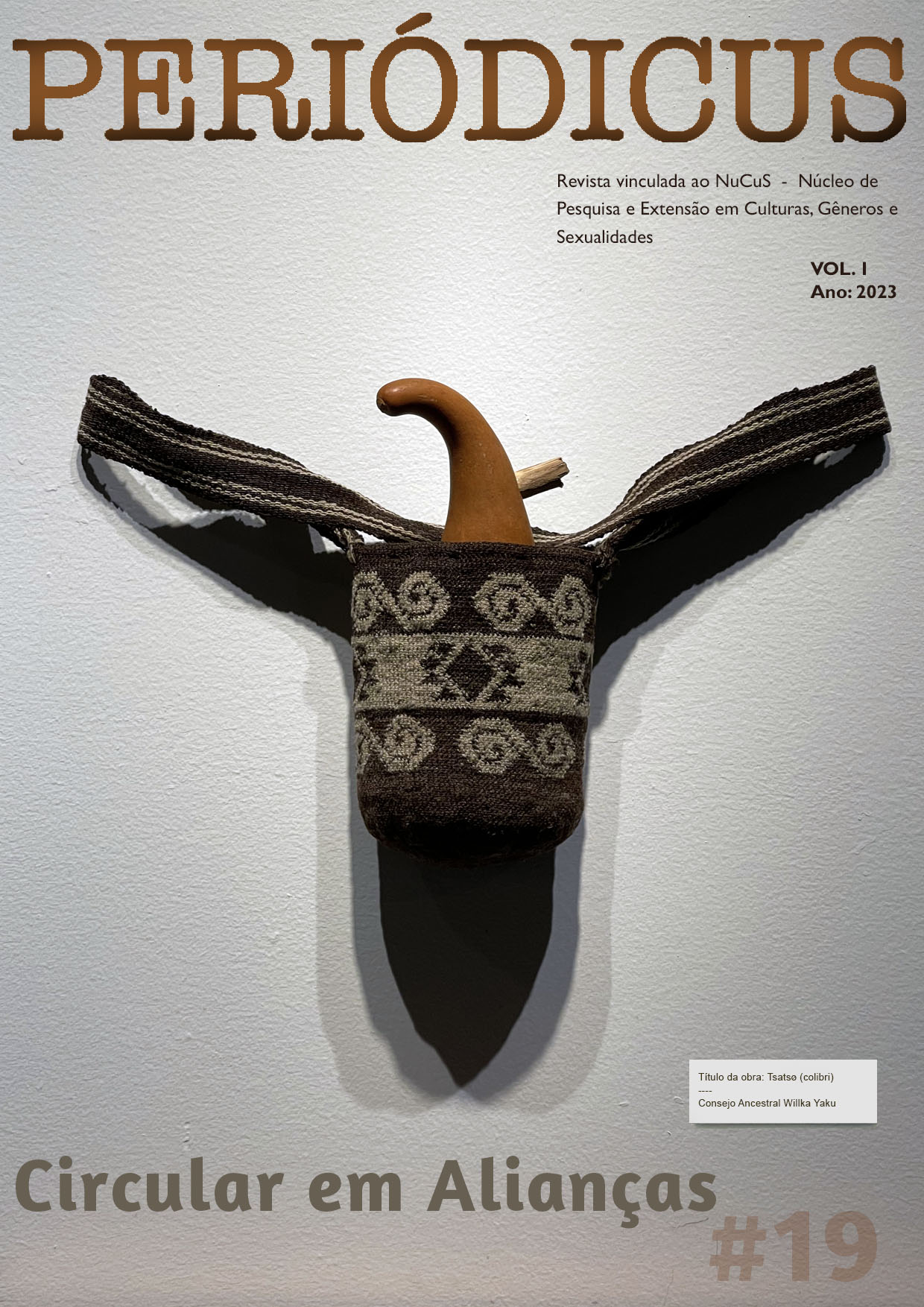The (un)updated device
analysis of gender coloniality in the DSM-V
DOI:
https://doi.org/10.9771/peri.v1i19.51417Abstract
The sex/gender system establishes classifications that build normative and deviant perspectives of masculinity and femininity. The Diagnostic and Statistical Manual of Mental Disorders 5th edition (DSM-V) is part of this process as a medical guide to mental illness that contains pathological categories related to part of the gender configurations. Based on documental analysis, this qualitative research problematizes how certain notions articulated in the chapter “Gender Dysphoria” operate in the (re)production of the colonial logic of genres by demarcating and classifying cisheteronormative configurations as normal and human, while those that deviate from this norm are considered abnormal, pathological, unfeasible. It is provisionally concluded on the importance of destabilizing "truths" built in coloniality and guaranteeing rights for minorities that add up in cuir multitudes.
Downloads
Downloads
Published
How to Cite
Issue
Section
License
Copyright (c) 2023 Flávia Fernandes de Carvalhaes

This work is licensed under a Creative Commons Attribution-NonCommercial 4.0 International License.
Authors who publish in this journal agree to the following terms:
Authors retain copyright and grant the journal the right of first publication, with the work simultaneously licensed under a Creative Commons Attribution Noncommercial License that allows the work to be shared with acknowledgment of authorship and initial publication in this journal, but prohibits commercial use.
Authors are authorized to enter into separate additional contracts for non-exclusive distribution of the version of the work published in this journal (e.g., publishing in an institutional repository or as a book chapter), with acknowledgment of authorship and initial publication in this journal.
Authors are permitted and encouraged to publish and distribute their work online (e.g., in institutional repositories or on their personal website) at any point before or during the editorial process, as this can generate productive changes and increase the impact and citation of the published work (see The Effect of Open Access).








